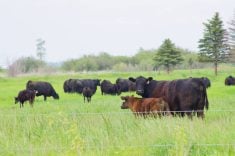Canada’s canola exports are in jeopardy if other nations refuse to accept genetically altered products.
“The canola industry is 81 percent dependent on the export market for seed, oil and meal,” said Dale Adolphe, president of the Canola Council of Canada.
About 44 percent of Canadian canola is exported as seed, while close to 40 percent is shipped as oil.
Canada’s largest buyers, Japan, Mexico and the United States, approve of novel canola but Europe will not accept the product. Concerns are especially high in the United Kingdom and Germany.
Read Also

House ag committee to undertake several studies
The House of Commons standing agriculture committee has set its agenda for the coming months. Members began the fall sitting with a two-hour update on international trade
Canada has been able to sell all its production without Europe’s patronage, Adolphe told the annual meeting of the Crop Protection Institute held in Calgary Sept. 19-22 .
He believes that demand for canola could reach seven to eight million tonnes annually. Canada has produced a seven million tonne crop only three times, in 1994, 1998 and probably this year.
The success could dissipate if other countries follow Europe’s lead and shut out novel canola.
“If we want genetic engineering, it appears we need to educate the consumer on the technology we utilize in order to fulfill the consumer’s want for information,” he said.
Labels calm fears
People want to know how food is produced and that it is safe to eat. They also want their food labeled if it was produced by genetic modification.
Japan has introduced mandatory labeling requirements that take effect April 2001. If labeling requirements become widespread, international standards must be set before the issue becomes a non-tariff trade barrier.
Adolphe said genetic engineering benefits canola because genetically modified varieties with novel traits offer better yields with fewer pests and diseases.
In Canada, canola competes for land with other crops like wheat and barley. Using science for pest control could open the door to shorter crop rotations.
In 1997, 59 novel trait canolas were released. They were herbicide resistant, carried special nutritional aspects, modified oil, or had industrial and pharmaceutical applications. Another 515 are in trials.

















